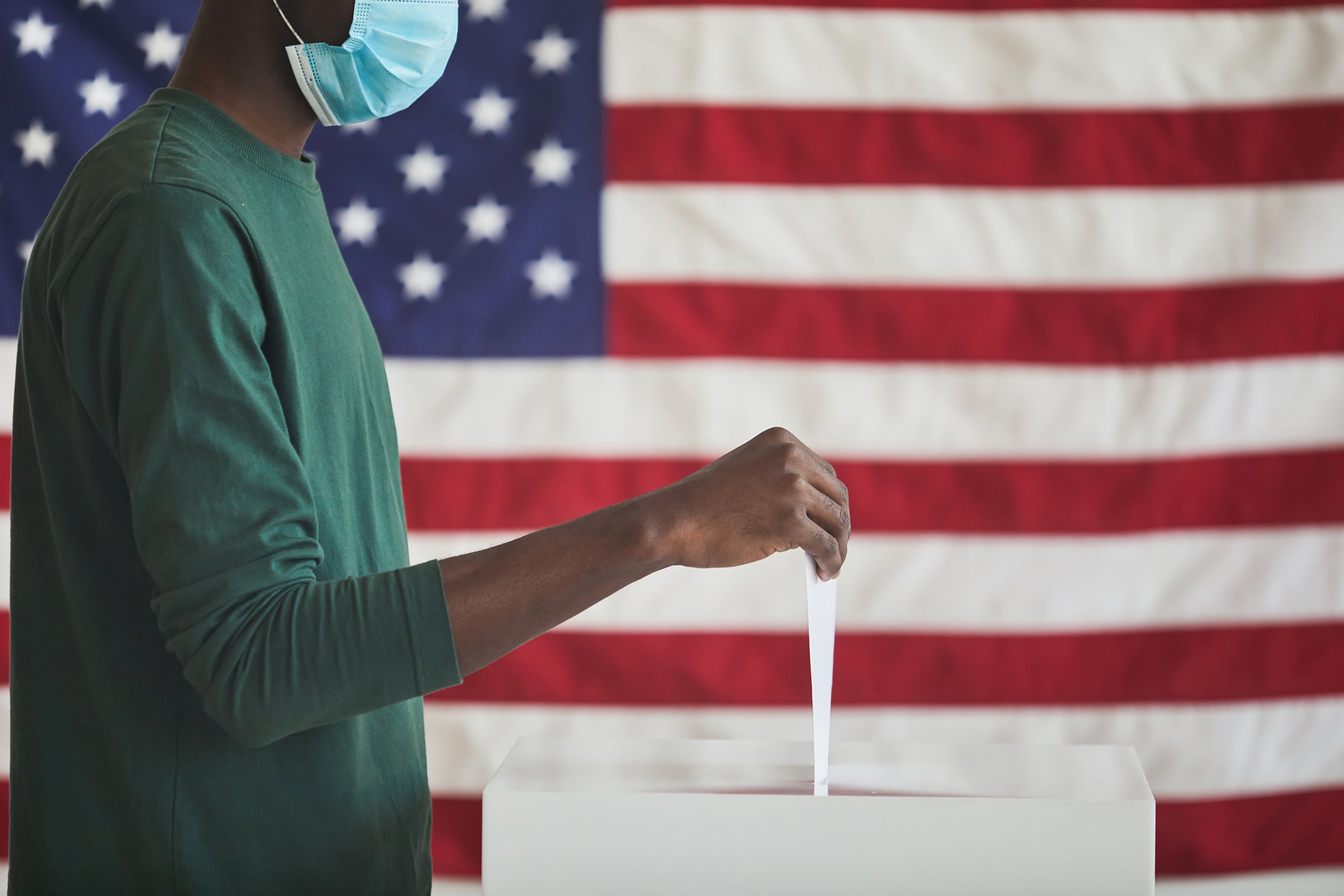As part of a series examining the first year of the Biden presidency, Harvard Law Today asked Ruth Greenwood, director of Harvard Law School’s Election Law Clinic, to share her thoughts on the administration’s successes and failures in addressing voting rights and elections challenges facing the United States.

Harvard Law Today: What has the administration done right so far?
Ruth Greenwood: The crucial things that democracy needs right now are stricter laws to ensure that the right to vote is protected and the ability to undermine a vote, or an election, is prohibited. The best thing the Biden administration has done for democracy so far is to revise and reintroduce the For the People Act (also called the Freedom to Vote Act), H.R. 1 of 2021, and the John Lewis Voting Rights Advancement Act, H.R. 4 of 2021. Together these laws would reform all aspects of our democracy — including regulating money in politics, expanding access to the ballot, ending partisan gerrymandering, and expanding voting protections for non-English speakers. In my experience, the staffers on the Hill worked hand in glove with the nation’s best voting rights experts to revise the language and produce bills that are widely applauded in the democracy space. The House has passed both pieces of legislation, but they have been stuck in the Senate for months.
HLT: What has the administration gotten wrong?
Greenwood: President Biden has decades of experience in the Senate, and that is what is needed now to get the For the People Act and the John Lewis Voting Rights Advancement Act passed. With a razor thin majority for Democrats, and basic principles of democracy having been turned into a partisan issue, the administration needs to be the leader of, at least, the Democrats and to get these bills enacted as soon as possible.
If it weren’t for the filibuster I believe the For the People Act and the John Lewis Voting Rights Advancement Act would have been signed into law already.
There have been huge challenges to this country, and I appreciate why the administration has needed to focus on stemming the immediate disastrous effects of the global pandemic. But without democratic protections beyond 2022, we could see more backsliding to anti-majoritarian legislative chambers and executives in this country. The one thing an unpopular party or leader will not do is enact expansionary democratic practices. This administration needs to focus on reforming democracy in 2022, otherwise the chance may be lost for a decade or more.
HLT: What has the administration not addressed yet that it should?
Greenwood: The role of social media in fomenting voter suppression and attempted election subversion has become more clear in the last year than ever before, yet the administration has not proposed reforms to stem the tide of mis- and dis- information about voting and elections available through online platforms. I was encouraged to see some congressional hearings on the question this year, but if the administration gets the For the People Act and the John Lewis Voting Rights Advancement Act passed, it should turn to social media regulation to further protect our democracy.
HLT: What are the biggest challenges the administration faces to its agenda going forward?
Greenwood: Unfortunately, there is a very simple answer to this question: the filibuster. If it weren’t for the filibuster I believe there could have been agreement on language for the For the People Act and the John Lewis Voting Rights Advancement Act and they would have been signed into law already. As long as the filibuster stands against democracy legislation, it will be almost impossible to get these bills enacted.
Read the series Weighing President Biden’s first year
